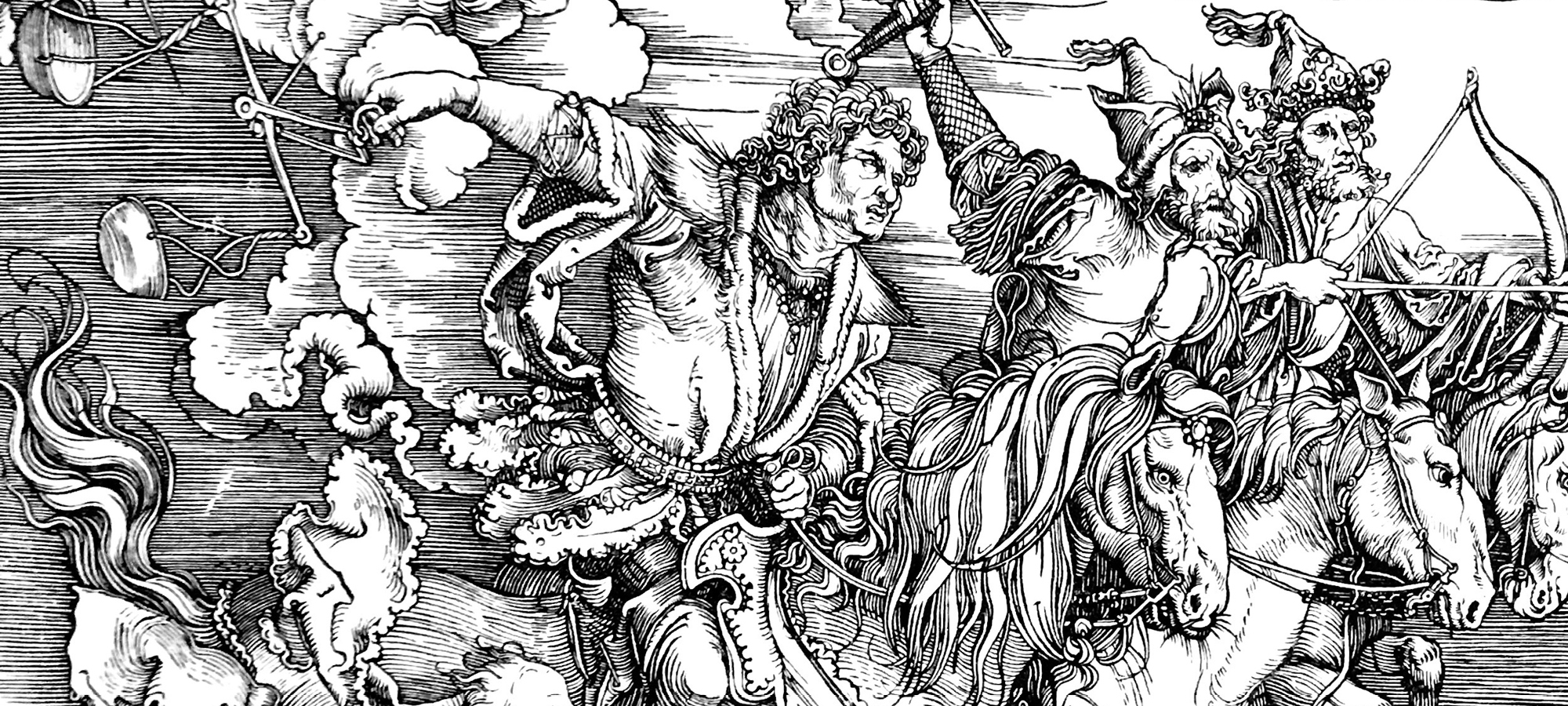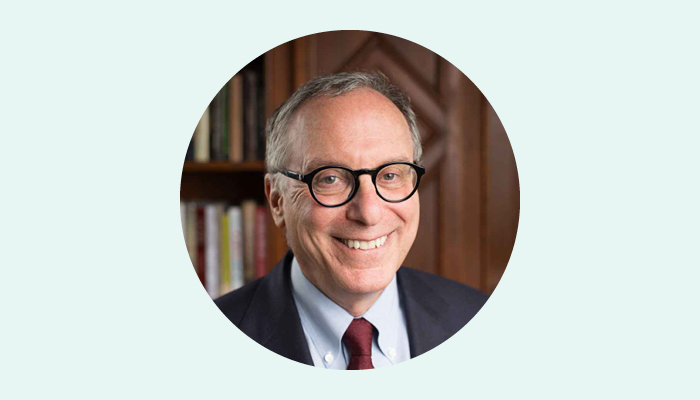
Apocalypse, then and now: In his recent lecture series, philosopher Jonathan Lear examined how different thinkers have imagined life after unimaginable disaster. (CLU Stock Photo/istock.com)
Lost in the pandemic.
More than a decade ago, in a book examining the philosophical and psychological consequences of civilizations ending, University of Chicago scholar Jonathan Lear offered a thought experiment: “Consider a situation,” he writes, “in which the social institution of restaurants goes out of existence.”
With its disruption of communal rituals, the COVID-19 pandemic has transformed that theoretical notion into a practical reality. Many restaurants did away with indoor dining or closed up shop altogether, conjuring a vision of a world without them. “I don’t think that’s going to happen,” Lear says in an interview over Zoom, “but it’s an imaginable thing.”
And once we can imagine the end—of anything that contributes to social cohesion—fissures develop in our concept of permanence. Will our institutions endure? What will be the wellspring of shared values? How will we rearrange our relationships to each other and preserve society?
Lear, the John U. Nef Distinguished Service Professor in Philosophy and the Committee on Social Thought, explored the intricacies of confronting those questions in Imagining the End: Thoughts on Mourning, Happiness, and Radical Hope, a three-part lecture series at Chicago’s Newberry Library that concluded April 7. The series began before the pandemic. By the second installment in November 2020, COVID-19 had introduced a real-time experience of the ideas that animated Lear’s talks.
“Imagine a future generation looking back on us and telling our story,” the philosopher told the library’s online audience. “Here’s the rub: we cannot really do that, at least in any way that does not immediately seem to be one person’s fantasy. We can imagine the narrative beginning, ‘They lived in a time of pandemic.’ But then what? The pandemic has destroyed any shared illusion about how the future will unfold continuously from the present.”
Sigmund Freud’s essay “On Transience” provided a historical comparison, exploring how World War I destroyed such an illusion. Lear knows the essay well, having studied it for decades. Writing in 1915, Freud begins with a recollection from before the war, of a summer stroll through the countryside with a young poet who laments the inevitable extinction of the natural beauty around them. That specter prevents the poet from taking any joy in his surroundings. He expresses instead what Freud calls an “aching despondency” over the eventual decay.
In Lear’s long-standing interpretation of the essay, that dour outlook leads Freud into a meditation on the undeniable transience of all life and whether impermanence diminishes meaning. Freud contradicts “the pessimistic poet’s view that the transience of what is beautiful involves any loss in its worth,” Lear says, and insists that temporality serves to enhance value.

The pandemic changed Lear’s reading of “On Transience.” He now sees Freud as reckoning not with the inexorable loss of all things, but rather with the specific ruin of the war. The metaphysical toll “shattered our pride in the achievements of our civilization,” Freud writes, revealing “how ephemeral were many things that we had regarded as changeless.”
Freud’s rumination on transience, a masked and distanced Lear came to believe, did not just happen to coincide with the European carnage. The essay now seems suffused with it. “I realized no, no, no,” he explained a few weeks after the second lecture, “the whole thing is about the destruction of war.”
Even those far from the fighting experienced a palpable sense of loss over the obliteration of cultural ideals and artifacts—just as those untouched by disease feel the tremors COVID-19 sends across society. In his lecture Lear summarized his updated analysis of “On Transience” this way: “Freud is grappling with how to live in the midst of world catastrophe and the radical uncertainty of the immediate future.”
To grapple successfully with radical uncertainty requires what Lear calls radical hope. This reminded him of another historical figure he has studied: Plenty Coups, the principal Crow chief who helped his people reckon with a new way of life after they were confined to a reservation.
In Radical Hope: Ethics in the Face of Cultural Devastation (Harvard University Press, 2006), Lear quotes Plenty Coups in what becomes a refrain in the book: “After this, nothing happened.” Life continued for individuals, but the sinew that connected the Crow as nomadic hunters and warriors had been severed.
In Lear’s telling, however, Plenty Coups personifies the Crow civilization’s visionary resilience. He tethers his people to important talismans, such as the chickadee (a traditional symbol of courage), even as they undergo a fundamental redefinition of their cultural identity. They cannot go back—but radical hope, as Lear defines the notion, lies in their willingness to accept what can never be restored while remaining receptive to unforeseeable forms of flourishing.
Throughout the 20th century and into the 21st, world wars, the perils of nuclear devastation, and climate upheaval have threatened civilizations at ever larger scales. Just the possibility of losing our sources of collective meaning, Lear believes, poses a psychic threat—one that the pandemic has made imminent and tangible.
A healthy response requires conceiving of a new way forward. “Part of the imagination’s job,” Lear says, “is to help us live a creative life in response to the future” rather than immobilize us.
The natural world, cultural achievements, and even entire civilizations are finite, their ends unknowable but imaginable—all too imaginable in moments of acute crisis. That heightened awareness could lead to despair. After this, what happens?
Lear’s scholarship does not presume to answer that question for any given situation. Instead he provides a way of thinking through despondency toward a radically hopeful response: We don’t know what happens when one world ends. But we have the chance to imagine a new one.
